The Lebanese pound retreated further against the dollar on the black market Tuesday as the political crisis deepened and more negative developments emerged regarding the stalled government formation. Black market exchange dealers were selling the greenback for LL8,850 and buying it for LL8,750, compared to LL8,800-LL8,700 Monday.
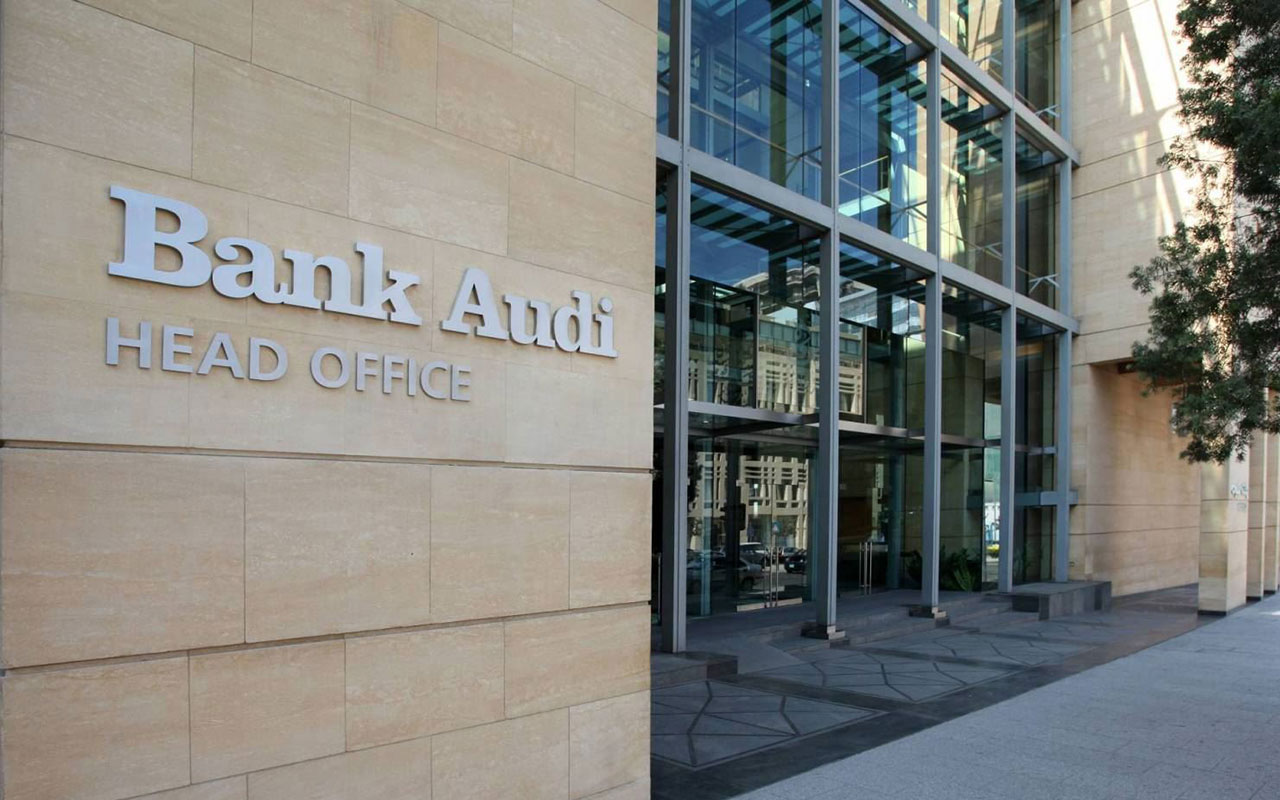
by arabianbusiness.com — Tony Akleh — The Lebanese banking sector has witnessed its first merger since the financial crisis hit the country in 2019, as banks continue to experience difficult and uncertain operating conditions. Bank Audi is merging the local business operations of its fully-owned subsidiaries Audi Private Bank and Audi Investment Bank into its own business. All the assets, liabilities rights, and commitments of Audi Private Bank and Audi Investment Bank will be transferred to Bank Audi. The total assets of Audi Private Bank stood at $1.43 billion while the assets of Audi Investment Bank totalled $307.5 million.
The merger, which will ensure the business continuity to Audi Private Bank and Audi Investment Bank customers, will create synergies on the operational front, a statement said. “This strategic merger enhances the future competitive positioning of Bank Audi with a significant elimination in duplication and lower operating expenses. Specific synergies were created in this respect, which integrate, among others, the governance and control frameworks of Audi Private Bank and Audi Investment Bank into those of Bank Audi,” the bank said. The merger has received the approval of Lebanon’s central bank.
by arabnews.com — BEIRUT: Lebanon’s caretaker health minister Hamad Hasan was admitted to hospital the novel coronavirus (COVID-19) on Wednesday evening. The Hezbollah-appointed minister was transferred to the St. George hospital in Beirut’s suburb of Al-Hadat for treatment, according to a hospital statement. Hasan’s condition was good, the statement added. Lebanon has experienced a spike […]

by reuters & Tass– Interpol has put three men on the wanted list. Two Russian citizens and one Portuguese are suspected in delivering explosives to the docks of Beirut; the materials were stored there for six years begore going off in August 2020. That explosion killed 200 people, thousands were wounded, and the city suffered huge damage. 7news.com reported that on January 12. According to the outlet, “Interpol-issued Red Notices were for the owner and captain of the Rhosus, the ship that carried the 2750 tonnes of ammonium nitrate to Lebanon in 2013, as well as a Portuguese nitrate trader who visited the port’s warehouse in Beirut in 2014 where the material was stored”.
Boris Prokoshev, the captain of the Rhosus, the ship that delivered 2,700 tonnes ammonium nitrate to the port of Beirut in 2013, claimed that he does not consider himself responsible for the Beirut explosion and will defend himself. Previously, Watania News reported that the Lebanese authorities officially applied for an international arrest warrant from Interpol against two Russians – the owner and the captain of Rhosus. On Tuesday, Interpol issued the warrant. According to Watania, the red corner notification was issue in response to the application of the Prosecutor General of Lebanon. “I have received no papers yet; it is unpleasant news, of course, and I do not know what to do right now. I will observe the development of the situation and will defend myself on my own: I do not have money for lawyers, of course, I live on my pension. I do not consider myself guilty,” Prokoshev told TASS.
The Red Notice is the request to law enforcers all over the world, which is supposed to speed up the search and temporarily arrest the culprit. It’s not the arrest warrant, and the government is not required to arrest the wanted suspect. Lebanon’s state prosecutor Ghassan Khoury was the one who asked the Interpol to issue the Red Notices. Related: 137 people died in Beirut’s explosion; French, American citizens among victims According to local media, the trio of suspects were “the vessel’s former captain Boris Prokoshev and Igor Grechushkin, a Russian businessman residing in Cyprus who had bought the cargo ship in 2012. The Portuguese man was identified as Jorge Manuel Mirra Neto Moreira”.
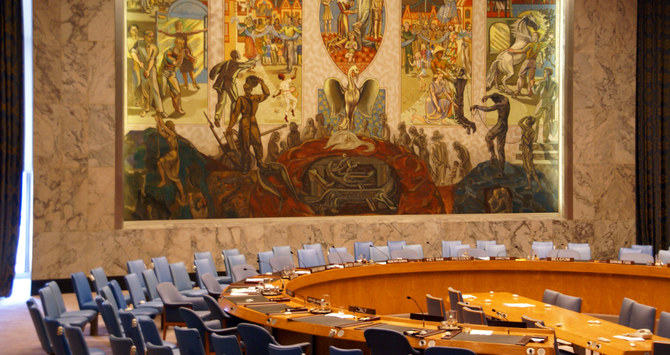
by naharnet — The Israeli army alleged Tuesday that a Lebanese shepherd nabbed by Israeli forces in the border area of Kfarshouba was collecting information for Hizbullah. Israeli army spokesman Avichay Adraee tweeted that the shepherd was “arrested in an ambush” after he “deliberately” crossed the frontier into Israeli-controlled territory. Noting that the shepherd was taken to interrogation, Adraee stressed that the Israeli army “will not tolerate any attempt to violate the sovereignty of the State of Israel.” “The arrested Lebanese shepherd belongs to a group that has been identified as being collaborative with Hizbullah, which uses shepherds in missions for collecting information and monitoring the Israeli army forces,” Adraee added. The Lebanese Army identified the shepherd as Hassan Qasem Zahra and said he was guarding livestock when he was detained.
by NAJIA HOUSSARI — arabnews.com —BEIRUT: Lebanon filed a complaint to the UN Security Council against Israel on Tuesday, over the latter’s continued violation of Lebanese airspace. The Lebanese Armed Forces command said that at least eight air violations were recorded by Israeli warplanes, which carried out low-altitude flights over the south and Mount Lebanon, in one day alone. It added: “The air violations are accompanied by sea violations. An Israeli gunboat violated on Monday Lebanese territorial waters off Ras Al-Naqoura in four stages and for a maximum distance of about 314 meters.” The army command stressed that “the issue of the violations is being discussed with the UN Interim Force In Lebanon (UNIFIL).”
MP Walid Sukkarieh, a retired Lebanese army officer, told Arab News: “There are two types of Israeli aircraft that violate the Lebanese airspace: Drones, which aim to monitor the movements on the ground, especially Hezbollah’s movements, and F-16 and F-17 warplanes, which are flying over Lebanon these days to show off. “Israel was betting on US President Donald Trump launching a war on Iran, as Israeli Prime Minister Benjamin Netanyahu cannot perform this mission alone without the US. However, what happened in the US Congress made Trump back off on this adventure, and when the factors of war crumble, Israel resorts to show off its strength in this manner.” He added that he believed that “neither Iran nor Hezbollah wants any war, nor do they have an interest in it.” UNIFIL has recorded a number of flights over Lebanese airspace in recent days by Israeli unmanned and fighter aircraft, said its spokesman Andrea Tenenti, who stressed that these are violations of Resolution 1701 and Lebanese sovereignty. “We have once again called on the IDF (Israel Defense Forces) Command to cease the overflights,” he said. “The continued violations increase fear among the local population and undermine our efforts to reduce tensions and establish a stable security environment in southern Lebanon.”
by middleeastmonitor.com — Lebanese, some wearing protective masks due to the COVID-19 pandemic, shop at a market in the Sabra neighbourhood of Beirut . Lebanese people lined up outside supermarkets and grocery stores in the capital Beirut and other cities to stock up on food as the government announced a tightening of its lockdown yesterday, […]
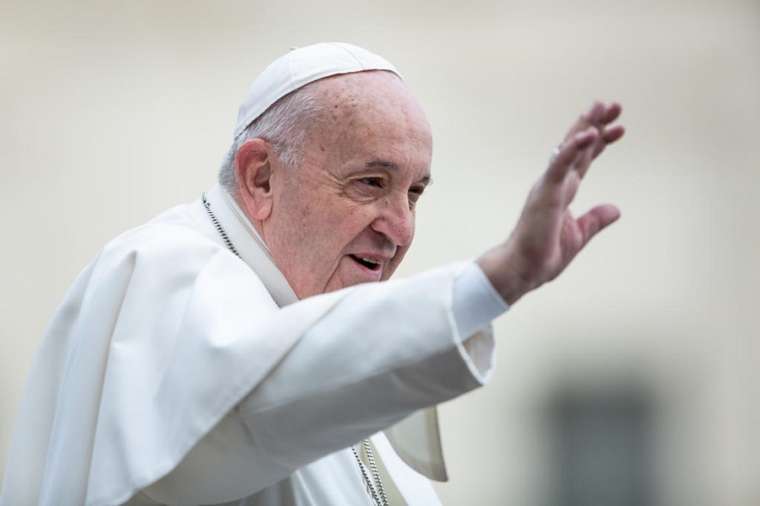
Vatican City, Courtney Mares — (CNA) — Pope Francis issued a motu proprio Monday changing canon law to allow women to serve as lectors and acolytes. In the motu proprio “Spiritus Domini,” issued on Jan. 11, the pope changed canon 230 § 1 of the Code of Canon Law to read: “Lay people who have the age and skills determined by decree of the Episcopal Conference, they can be permanently assumed, through the established liturgical rite, to the ministries of lectors and of acolytes; however this contribution does not give them the right to support or to remuneration by the Church.” Prior to this change, the law formerly said that “lay men who possess the age and qualifications established by decree of the conference of bishops can be admitted on a stable basis through the prescribed liturgical rite to the ministries of lector and acolyte.”
The roles of lector and acolyte are publicly recognized ministries instituted by the Church. The roles were once considered “minor orders” in the tradition of the Church and were changed to ministries by Pope Paul VI. According to Church law, “before anyone is promoted to the permanent or transitional diaconate, he is required to have received the ministries of lector and acolyte.” Pope Francis wrote a letter to Cardinal Luis Ladaria, prefect of the Congregation for the Doctrine of the Faith, explaining his decision to admit women to the ministries of lector and acolyte. In this letter, the pope highlighted the distinction between “‘established’ (or ‘lay’) ministries and ‘ordained’ ministries,” and expressed hope that opening these lay ministries to women might “better manifest the common baptismal dignity of the members of the People of God.” He said: “The Apostle Paul distinguishes between gifts of grace-charisms (‘charismata’) and services (‘diakoniai’ – ‘ministry [cf. Rom 12, 4ff and 1 Cor 12, 12ff]). According to the tradition of the Church, the various forms that charisms take when they are publicly recognized and are made available to the community and its mission in a stable form are called ministries,” the pope wrote in the letter published Jan. 11. “In some cases the ministry has its origin in a specific sacrament, Holy Orders: these are the ‘ordained’ ministries, the bishop, the presbyter, the deacon. In other cases the ministry is entrusted, with a liturgical act of the bishop, to a person who has received Baptism and Confirmation and in whom specific charisms are recognized, after an adequate journey of preparation: we then speak of ‘instituted’ ministries.”
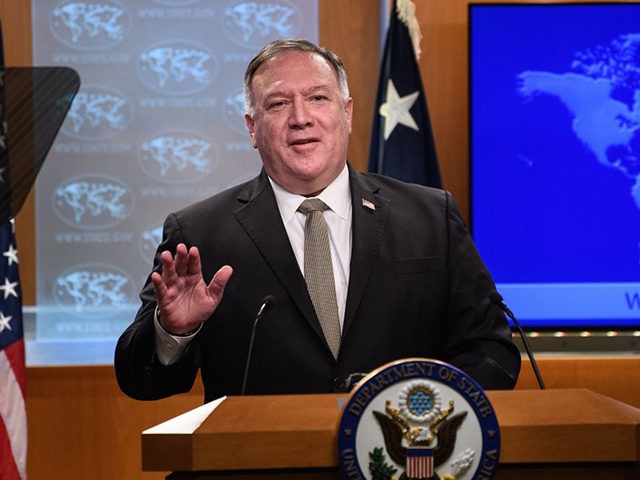
by FRANCES MARTEL — After decades on the list — since 1982 — President Barack Obama removed Cuba from the official State Department list of State Sponsors of Terrorism in 2015, claiming the evidence did not support a place for the regime on that list. At the time, Cuba shared the list with Iran, Syria, North Korea and Sudan; the administration of President Donald Trump removed Sudan from the list in 2020. Since Obama’s decision to remove Cuba, reports have repeatedly indicated that Cuba has direct ties to the Shiite jihadist organization Hezbollah, including reports linking Cuban funding to the creation of Venezuelan passport machines that ultimately created fraudulent documentation for Hezbollah members from the Middle East. The Castro regime has also never hidden its support for the FARC, a Marxist terrorist organization, including allowing prominent FARC leaders to march in its parades after Obama removed it from the state sponsors of terrorism list.
In announcing the designation Monday, Pompeo said in a statement that the move was necessary in light of the Communist Party of Cuba “repeatedly providing support for acts of international terrorism in granting safe harbor to terrorists.” “The Trump Administration has been focused from the start on denying the Castro regime the resources it uses to oppress its people at home, and countering its malign interference in Venezuela and the rest of the Western Hemisphere,” Pompeo noted. Countries on the list of state sponsors of terrorism are subject to “restrictions on U.S. foreign assistance; a ban on defense exports and sales; certain controls over exports of dual use items; and miscellaneous financial and other restrictions,” according to the State Department.
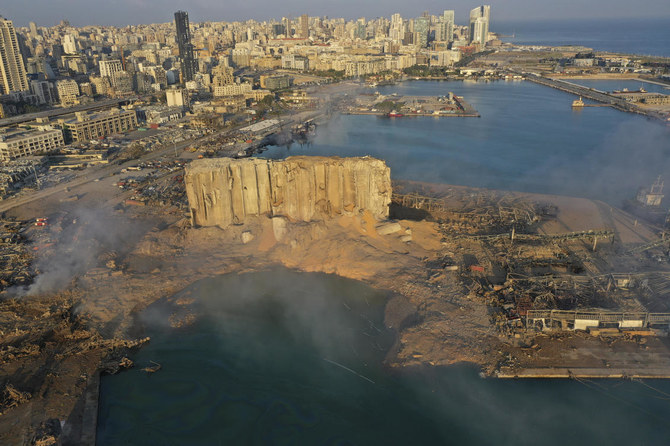
by AP — BEIRUT: Lebanon’s highest court said Monday the prosecutor investigating last year’s massive explosion at the Beirut port that killed dozens and injured thousands can resume his work after a three-week pause following legal challenges to his authority. The Court of Cassation’s decision gives the green light to Judge Fadi Sawwan to question officials and civil servants over the Aug. 4 explosion of nearly 3,000 tons of ammonium nitrate, a highly explosive material used mostly as a fertilizer. The blast killed more than 200 people, injured over 6,000 and damaged entire neighborhoods in the capital. The court’s decision, reported by the official state news agency, is likely to ease concerns by members of the public who feared the investigation might end given Lebanon’s decades-long culture of impunity.
Nearly 30 people, most of them port and customs officials, have been arrested since the blast. Last month, Sawwan filed charges against caretaker Prime Minister Hassan Diab and three former ministers, accusing them of negligence leading to the deaths of hundreds of people. Diab and the three former ministers did not show up for questioning following the charges. The summoning sparked concerted criticism from most of Lebanon’s top politicians and the militant Hezbollah group, which urged Sawwan to reconsider his decision, describing it as politically motivated. Sawwan paused his investigation to allow him to respond to accusations that he violated legal and constitutional procedures by summoning for questioning Diab and the three former ministers.
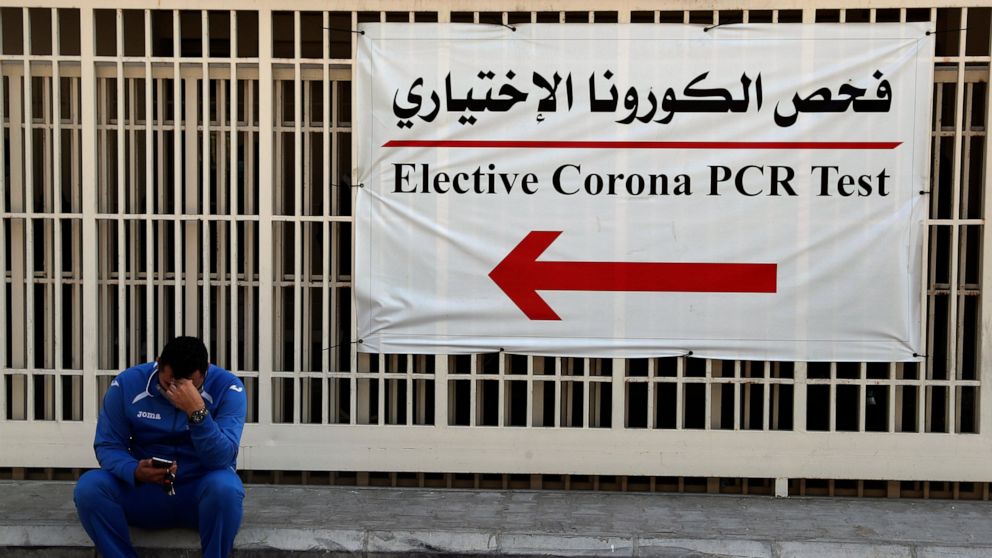
By SARAH EL DEEB and FADI TAWIL Associated Press- BEIRUT — Lebanese authorities tightened a nationwide lockdown Monday, including an 11-day, 24-hour curfew, amid a dramatic surge in coronavirus infections and growing criticism of uncoordinated policies many blame for the spread of the virus. News of the restrictions to be implemented starting Thursday morning sparked panicked grocery buying as people lined up outside of supermarkets to stock up, raising fears the crowds could further spread the virus. Lebanon had only just announced a nationwide lockdown last week. But many, including the health minister and officials on a government committee, considered it to be too lenient because it exempted many sectors, such as florists, plant nurseries and factories. Hospitals, meanwhile, were running out of beds amid rapidly multiplying COVID-19 cases.
Critics have said uncoordinated and hesitant policies wavering between relaxing restrictions and shutting down were behind the failure to contain the virus. For instance, despite a rise in infections, the government relaxed restrictions ahead of Christmas and New Year’s celebrations, hoping to boost a crumbling local economy as thousands of Lebanese expats arrived in the country. Bars and nightclubs, which had been ordered shut for months, were allowed to open. Daily infection rates have since hovered above 3,000, hitting an all-time high of over 5,000 last week. Doctors and experts say the extent of the spread has yet to be felt, predicting numbers will skyrocket in the coming days, overwhelming health facilities in the country of nearly 6 million. Despite the nationwide lockdown announced last week, a soccer match was allowed to take place in the northern Tripoli province on Sunday with an audience and was aired on TV.



